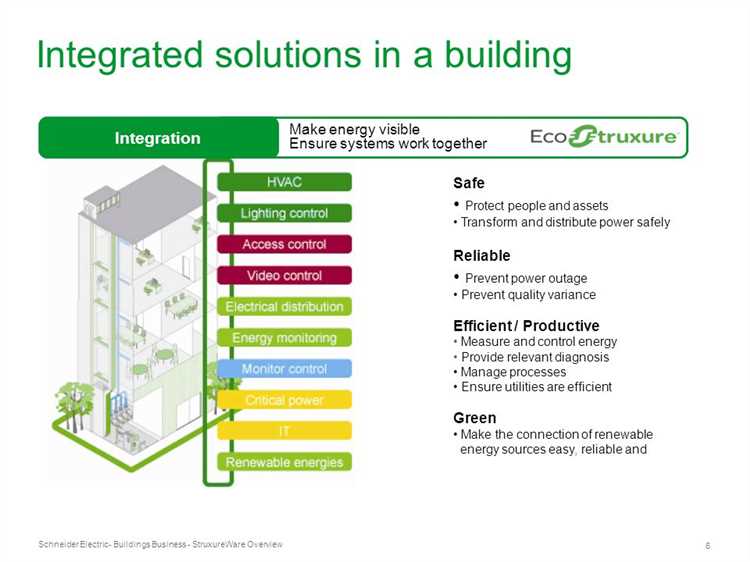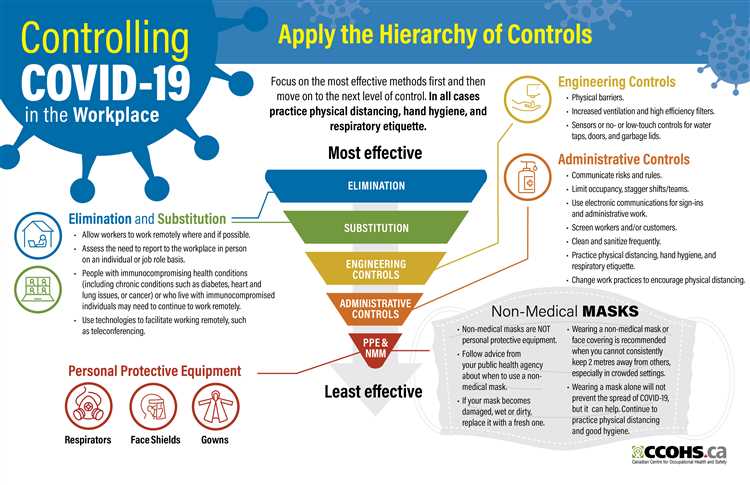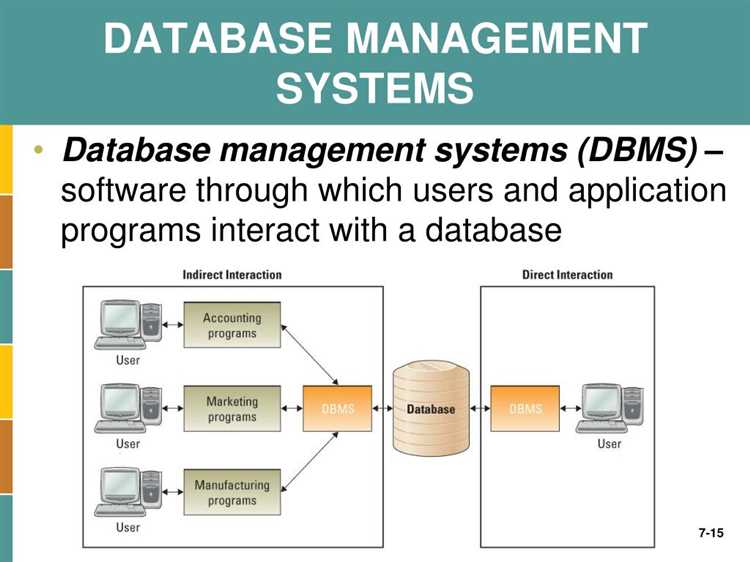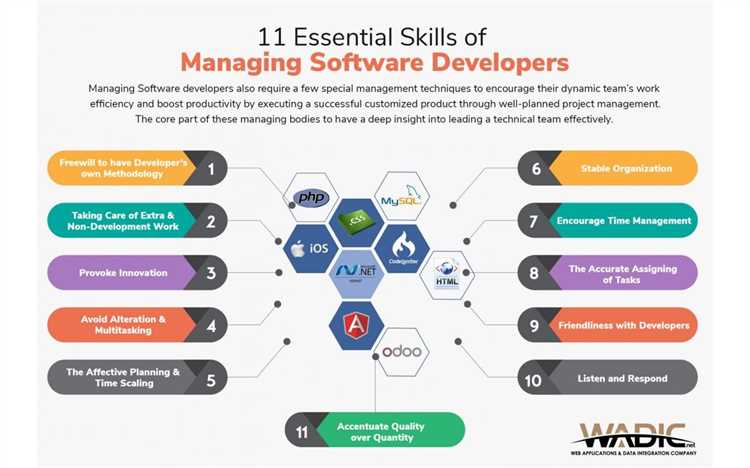Contpark specializes in offering a robust terminal management solution. Its platform includes features for real-time visibility, workflow automation, and security, simplifying terminal operations and increasing productivity.

A Container Yard Management System (CYMS) is a software solution designed to streamline operations and improve efficiency in port and container terminal facilities. By leveraging advanced analytics and real-time tracking technology, CYMS enhances the accuracy and organization of container handling processes, bolstering planning, routing, and scheduling capabilities.
One key feature of CYMS is RFID technology, which enables the automated tracking and identification of containers. This not only improves the safety and efficiency of containerized cargo handling but also provides real-time visibility into container status, weight, and location. With this information, drivers and dispatchers can optimize routes and streamline loading and unloading processes, saving time and increasing overall productivity.
Another important aspect of CYMS is its integration with Telematics and Fleet Management Systems. By connecting with these solutions, CYMS enables real-time reporting and monitoring of equipment and driver performance. This allows for proactive maintenance and detention management, ensuring that containers and trucks are in optimal condition and reducing the risk of delays or accidents.
In addition, CYMS offers robust warehouse and depot management capabilities, enabling efficient cargo storage and handling. With features such as container load verification and access control, CYMS provides a secure and streamlined workflow, minimizing errors and improving compliance with import and export regulations. By optimizing container placement and scheduling, CYMS also maximizes space utilization and reduces congestion in the yard, further enhancing efficiency.
In summary, a Container Yard Management System is a powerful solution for boosting efficiency and productivity in port and container terminal operations. By integrating analytics, tracking technology, and fleet management systems, CYMS enables accurate planning, streamlined operations, and real-time visibility. With improved workflow and optimized resource utilization, CYMS not only enhances efficiency but also improves safety and compliance, ultimately driving greater profitability and customer satisfaction.
A Container Yard Management System (CYMS) is a telematics solution that helps streamline and optimize containerized cargo operations in a container yard. It provides real-time tracking and reporting capabilities to manage the movement, placement, and allocation of containers within the yard.
With a CYMS, truck drivers can easily access the system through their GPS-enabled devices, allowing for efficient dispatch and allocation of resources. The system also integrates with other trucking and logistics management solutions, such as Transportation Management Systems (TMS), to streamline the workflow between various stakeholders.
The CYMS utilizes RFID technology to provide accurate and real-time tracking of containers, ensuring the security and safety of shipments. This enables efficient loading, unloading, and inspection processes, as well as effective maintenance and stowage of containers within the yard.
Furthermore, the CYMS provides analytics and reporting capabilities that give organizations valuable insights into container availablity, weight distribution, and overall yard productivity. This data helps optimize yard operations, improve efficiency, and enhance fulfillment of customer orders.
Overall, a Container Yard Management System is a digital software solution that helps enhance productivity, streamline workflows, and improve resource allocation in containerized cargo operations. It effectively manages the movement, placement, and security of containers within the yard, optimizing logistics and ensuring timely delivery of goods.
A Container Yard Management System (CYMS) offers numerous benefits to companies involved in containerized cargo transport and storage. By streamlining operations and improving workflow, CYMS solutions can significantly boost efficiency and productivity. Here are some key benefits of implementing a CYMS:

The implementation of a Container Yard Management System (CYMS) allows for efficient monitoring of transportation operations in container yards. With the use of telematics and real-time tracking, the system enables organizations to streamline the movement of vehicles and containers within the yard. This optimization of allocation and placement reduces trucking time and increases productivity for the organization.
By providing notifications and alerts, the CYMS improves the workflow and planning of the yard. Yard personnel are notified of container availablity and can plan loading and unloading activities accordingly. This leads to better inventory management and minimizes demurrage costs for the organization.
The CYMS also offers solutions for optimizing fuel supply and consumption. Through accurate reporting and analytics, organizations can identify fuel usage patterns and implement measures to reduce fuel wastage. Additionally, the system can track the status of containerized cargo and provide real-time information to drivers, ensuring timely and safe transport of goods.
Integration of the CYMS with other systems, such as dock and ramp management, further streamlines operations. This seamless connectivity allows for efficient planning and coordination of activities, improving overall yard efficiency. The CYMS also facilitates the stowage and placement of containers, ensuring easy access and organization of the yard.
Overall, a Container Yard Management System plays a vital role in streamlining operations within a yard. Its advanced features, such as real-time monitoring, optimization, and integration, enhance productivity, safety, and accuracy in container transportation. By implementing a CYMS, organizations can effectively manage their yard operations, leading to improved efficiency and fulfillment of shipment requirements in ports and terminals.

The implementation of a Container Yard Management System (CYMS) can greatly improve the efficiency and productivity of various aspects of container operations. With a CYMS in place, the workflow of the container yard can be streamlined, ensuring that each step is optimized for maximum productivity.
One area where efficiency can be improved is the loading and unloading of containers. With a CYMS, the management of container allocation and tracking becomes digital, allowing for real-time visibility of container status and location. This eliminates the need for manual tracking and reduces the risk of errors in container handling. Additionally, telematics and GPS technology can be utilized to enhance the monitoring and tracking of containers, ensuring efficient loading and unloading operations.
The CYMS also facilitates the efficient dispatch and transportation of containers. Through digital dispatching and automation, containers can be allocated to the appropriate trucks and personnel, ensuring timely and organized transportation. The system can optimize routes and schedules, improving the overall efficiency of container transportation and reducing the time and cost associated with drayage.
Furthermore, compliance and security can be enhanced with the implementation of a CYMS. The system can monitor and track container movements, ensuring compliance with regulations and preventing unauthorized access. This improves the safety and security of containerized cargo, as well as the overall efficiency of container operations.
In addition to container yard management, a CYMS can also improve the efficiency of warehouse and depot operations. The system can provide visibility and control over container movements within the warehouse or depot, optimizing the allocation of containers and ensuring efficient fulfillment of orders. This streamlines the workflow and improves the overall efficiency of the operation.
In conclusion, the implementation of a Container Yard Management System can significantly improve the efficiency and productivity of container operations. By optimizing workflow, automating processes, and enhancing visibility and control, a CYMS contributes to the streamlining of container yard and depot operations, resulting in improved efficiency and cost savings.
In today’s fast-paced shipping industry, increasing productivity is essential to meet the demands of growing cargo volumes. A Container Yard Management System (CYMS) can greatly enhance loading and terminal operations, resulting in improved efficiency and productivity.
One of the key drivers of increased productivity is the automation and real-time monitoring provided by a CYMS. By integrating the system with various operations such as stowage planning, cargo allocation, and equipment tracking, organizations can better manage their resources and streamline their logistics processes.
The CYMS provides accurate and up-to-date information on the status and availability of containers, chassis, and trailers. This helps yardmasters, drivers, and trucking companies efficiently plan and schedule their operations, ensuring that the right equipment is allocated to the right shipment at the right time.
The system also enhances security and efficiency by automating the verification of container weights and improving the monitoring of container movements within the yard. By reducing the time and effort required for manual processes, the CYMS allows for faster and more accurate dispatching and scheduling, reducing fuel consumption and improving overall fleet efficiency.
Furthermore, the CYMS helps to reduce demurrage and detention fees by optimizing the use of yard space and minimizing the time that containers spend in the yard. By maximizing the utilization of available space and ensuring efficient ramp and vessel operations, the system helps to minimize delays and improve overall container turnaround times.
In summary, implementing a Container Yard Management System can significantly improve productivity in terminal operations, leading to increased efficiency and reduced costs for shipping organizations. By automating and streamlining various processes, the CYMS enables real-time monitoring, accurate planning, and efficient resource allocation, resulting in faster turnaround times and improved overall performance.
In order to boost efficiency and productivity in container yard management, it is crucial to have enhanced visibility and tracking solutions. By implementing the right software and equipment, organizations can gain real-time access to data and reporting, allowing them to efficiently monitor and track the status, availablity, and location of containers, chassis, and trucks throughout the yard.
A Container Yard Management System (CYMS) is a digital solution that enhances the efficiency and productivity of a container yard. The key features of a CYMS include:
A Container Yard Management System is an essential tool for containerization organizations as it streamlines operations, optimizes resources, and boosts productivity. By utilizing the key features mentioned above, container yards can achieve operational excellence and meet the demands of a rapidly growing industry.
Gate automation plays a crucial role in streamlining the operations of a terminal or port. By integrating telematics and RFID technology, gate automation allows for efficient and accurate tracking of equipment and data, reducing the need for manual processes.
With gate automation, truck entry and exit is seamlessly managed, improving the overall efficiency of trucking operations. RFID tags are used for easy verification of the truck and driver, ensuring accurate allocation of resources and minimizing delays.
Automation also enables real-time monitoring of yard activities and cargo movements, providing instant access to information for better management and decision-making. This includes tracking the placement and loading of containers, ensuring efficient utilization of yard space and equipment.
In addition to improving efficiency, gate automation contributes to enhanced safety and security measures. Access controls and monitoring systems ensure that only authorized personnel have access to the yard and its resources, minimizing the risk of theft and unauthorized entry.
Gate automation also facilitates customs clearance procedures by providing digital records and real-time data to authorities. This simplifies the verification process and saves time for both the port and customs officials.
Furthermore, by integrating GPS and telematics technology, gate automation enables efficient fleet management and maintenance. This includes optimizing fuel utilization, reducing downtime due to maintenance issues, and enabling effective scheduling of inspections and repairs.
In summary, gate automation is a critical solution for enhancing the efficiency, accuracy, and safety of container yard management. By automating processes, optimizing resource allocation, and providing real-time data, gate automation contributes to streamlined operations, improved productivity, and cost savings for terminal operators.
Yard planning and optimization play a critical role in streamlining the workflow of container yard management systems. By harnessing the power of data and analytics, these systems enable efficient handling and tracking of container shipments in a warehouse or terminal.
Integrating with gate and RFID technologies, these systems provide real-time status updates and notifications, allowing personnel to easily track the availability and location of containers. This level of visibility helps in improving supply chain compliance and enhancing the overall efficiency and productivity of the yard management operation.
Yard planning and optimization solutions also focus on optimizing the utilization of resources such as cranes, trailers, and personnel. By analyzing data on container stowage, loading schedules, and transportation logistics, these systems help in maximizing the efficiency of cargo handling and storage.
In addition to optimizing container utilization, yard management systems provide features for demurrage and inspection management. By automating these processes, they reduce manual errors and delays, freeing up valuable time for personnel to focus on other critical tasks.
Digital reporting and analytics are key features of such systems, providing insights into operational performance and facilitating data-driven decision-making. These analytics help in identifying bottlenecks and inefficiencies, enabling organizations to implement targeted solutions for improving yard operations.
Overall, yard planning and optimization solutions bring efficiencies to container yard management operations. By providing accurate and real-time data, these systems help in improving the efficiency and productivity of the entire supply chain, from cargo handling and transport to fulfillment and delivery.
Real-time monitoring is a crucial element in boosting productivity, efficiency, and security in container yard operations. By implementing a container yard management system (CYMS), businesses can maximize their inventory management capabilities by utilizing telematics and GPS technology. This allows for accurate tracking of container locations, ensuring containers are always accessible when needed.
In addition to tracking containerized goods, real-time monitoring also provides details on the status of containers, including customs clearance, time spent in the yard, and inspection records. This information is essential for efficient allocation of containers and effective supply chain management. With a CYMS, businesses can automate notifications and alerts for container availablity, ensuring that containers are ready for delivery when needed.
Real-time monitoring also extends to other aspects of yard operations, such as weight verification, fuel consumption tracking, and crane load analytics. By accessing this data in real-time, businesses can make informed decisions and adjust their workflows, leading to optimized resource allocation and improved efficiency in warehouse operations.
The use of digital solutions, such as a container yard management system, enables yardmasters to have a comprehensive overview of the entire yard, including the status of containers, the schedule of arrivals and departures, and the allocation of resources. This real-time data allows for proactive decision-making and efficient routing of vehicles, minimizing wait times at ports and docks during loading and unloading processes.
Furthermore, real-time monitoring plays a crucial role in ensuring the security and safety of container yards. By implementing advanced tracking and surveillance systems, businesses can effectively monitor the movement of containers, ensuring they are stored in designated areas and preventing unauthorized access. Additionally, real-time monitoring enables quick reporting and notification of any anomalies or security breaches, allowing for immediate action to be taken to resolve any issues.
In conclusion, real-time monitoring is a vital component in modern container yard operations. By utilizing a container yard management system, businesses can enhance productivity, efficiency, and security, maximizing their inventory management capabilities and improving their overall supply chain operations.
Efficient inventory management is crucial for organizations operating container yards or terminals. Streamlining the storage, tracking, and handling of containers is essential for optimizing operational efficiency and maximizing productivity.
A container yard management system provides a comprehensive solution for inventory management. It allows for accurate tracking and planning of container movements, ensuring visibility and real-time monitoring of the inventory status. The use of digital technologies, such as GPS and telematics, enables efficient routing and dispatching of containerized goods.
The system allows for efficient load planning, ensuring the optimal use of resources and minimizing detention times. It provides notifications and alerts for timely warehouse operations and customs clearance, facilitating smooth and timely shipment fulfillment.
The inventory management software offers a centralized platform for managing container weights, trailers, and vehicle dispatching. It ensures the efficient handling of intermodal transport, from the depot to the terminal, by providing real-time visibility and monitoring.
The yardmaster module of the container yard management system allows for effective management of the container yard, strategically organizing the placement and movement of containers to maximize space utilization. It offers features for load planning, container tracking, and inventory management, optimizing overall yard operations.
By implementing a container yard management system, organizations can enhance their inventory management capabilities, streamlining operations, improving accuracy, and maximizing efficiency and productivity.
Status Visibility: A Container Yard Management System provides real-time status updates on the location, condition, and availability of containers within the yard. Through RFID technology, the system allows easy access to information about each container, including its current position, scheduled arrival and departure times, and allocation for transportation.
Organization and Planning: The system allows for efficient organization and planning of container movement within the yard. It provides insight into the location and availability of containers, enabling better scheduling and allocation of resources, such as trucks and trailers, for transportation.
Reporting and Data Analysis: The system generates comprehensive reports and provides data analysis to optimize operations and improve efficiency. It tracks container movement, inventory levels, and yard activities, allowing for better decision-making and resource allocation. Through reporting and analytics, organizations can identify bottlenecks or areas for improvement and implement strategies to enhance productivity.
Safety and Inspection: The Container Yard Management System includes safety features and automates inspection processes. It ensures adherence to safety regulations and standards, reducing the risk of accidents and injuries. The system also enables digital verification of container condition and tracks maintenance and repair activities.
Customs and Dispatching: The system facilitates customs clearance processes by providing visibility and documentation of container movement. It streamlines dispatching operations by optimizing the sequencing of container loading and unloading and providing real-time notifications about container availability and delivery status.
Security and Container Tracking: A Container Yard Management System enhances security by enabling real-time tracking and monitoring of container movement. It reduces the risk of theft and unauthorized access to containers by providing visibility and control over containerized goods. The system also helps to track demurrage charges and monitor container compliance with customs regulations.
Efficiency and Productivity: By streamlining yard operations, optimizing resources, and automating processes, a Container Yard Management System improves overall efficiency and productivity. It reduces manual effort and eliminates paper-based processes, saving time and reducing errors. The system also enables better planning and utilization of resources, such as fuel, fleet, and warehouse space, resulting in cost savings and increased operational efficiency.

Container yard management systems have revolutionized the way logistics companies handle their operations. Through the use of advanced analytics and real-time tracking, these systems have greatly improved efficiencies in transportation and reporting. One successful implementation of a container yard management system involved the integration of a software solution that provided comprehensive data on the organization’s trailer and chassis storage and availablity. This improved the overall efficiency of the yard and allowed for more efficient routing and handling of containers.
Another case study demonstrated the benefits of using a container yard management system for driver and vehicle tracking. By implementing a digital solution, the logistics company was able to track the location and status of their drivers, vehicles, and containers in real-time. This allowed for better planning and allocation of resources, optimizing the fleet and reducing unnecessary delays in delivery. Additionally, the system helped to improve compliance with telematics and customs regulations, ensuring smooth gate and yard operations.
A third case study focused on the efficient management of container load and unload processes. By implementing a container yard management system, the company was able to digitalize the entire workflow, from scheduling and dispatch to drayage and unload. This streamlined the entire process and improved the accuracy and speed of container handling. The system also provided important data on container availablity and demurrage, allowing the company to optimize their shipment planning and reduce costly delays.
Overall, these case studies demonstrate the immense benefits of using a container yard management system in improving logistics operations. From increased efficiency and productivity to enhanced security and compliance, these systems have proven to be an indispensable tool for any organization involved in container transportation and storage.
Choosing the right container yard management system is crucial for enhancing efficiency and productivity in your organization. With the right system in place, you can streamline your workflows, improve accuracy, and gain real-time visibility into your container yard operations. Here are some key factors to consider when selecting a container yard management system:
By considering these key factors, you can choose a container yard management system that aligns with your organization’s specific needs and goals. Implementing the right system will enhance efficiency, improve accuracy, and boost productivity in your container yard operations.
A container yard management system is a software solution that helps businesses manage and optimize the movement and storage of containers in a container yard or terminal. It provides real-time visibility into container location, automates processes, and increases operational efficiency.
Choosing the right container yard management system is important because it can significantly impact the operational efficiency and profitability of a business. The right system will streamline container handling processes, improve visibility and accuracy, reduce errors and delays, and ultimately enhance customer satisfaction.
Key features to look for in a container yard management system include real-time container tracking and visibility, automated gate operations, appointment scheduling, inventory management, integration with other systems, analytics and reporting capabilities, and flexibility to adapt to changing business needs.
To evaluate different container yard management systems, you can consider factors such as functionality and features, ease of implementation and use, scalability and flexibility, compatibility with your existing IT infrastructure, vendor support and reputation, and total cost of ownership. You can also seek references from other businesses in your industry.
Implementing a container yard management system can bring numerous benefits to a business, including improved operational efficiency, increased productivity, reduced costs and errors, enhanced customer service, better resource allocation, optimized yard utilization, improved visibility and reporting, and the ability to scale and adapt to future growth.